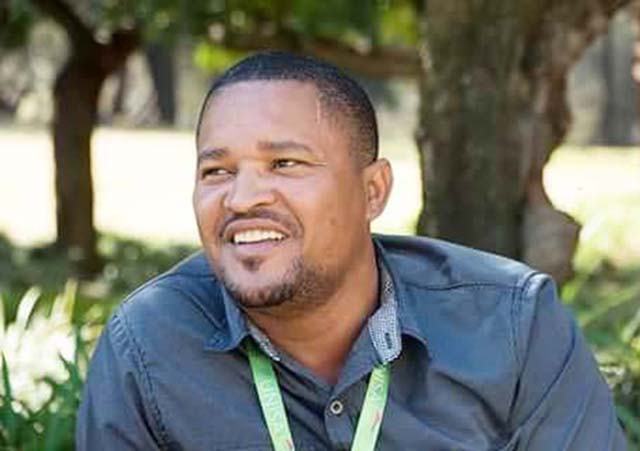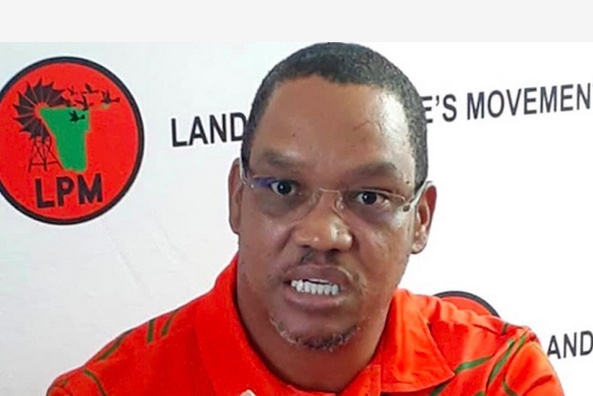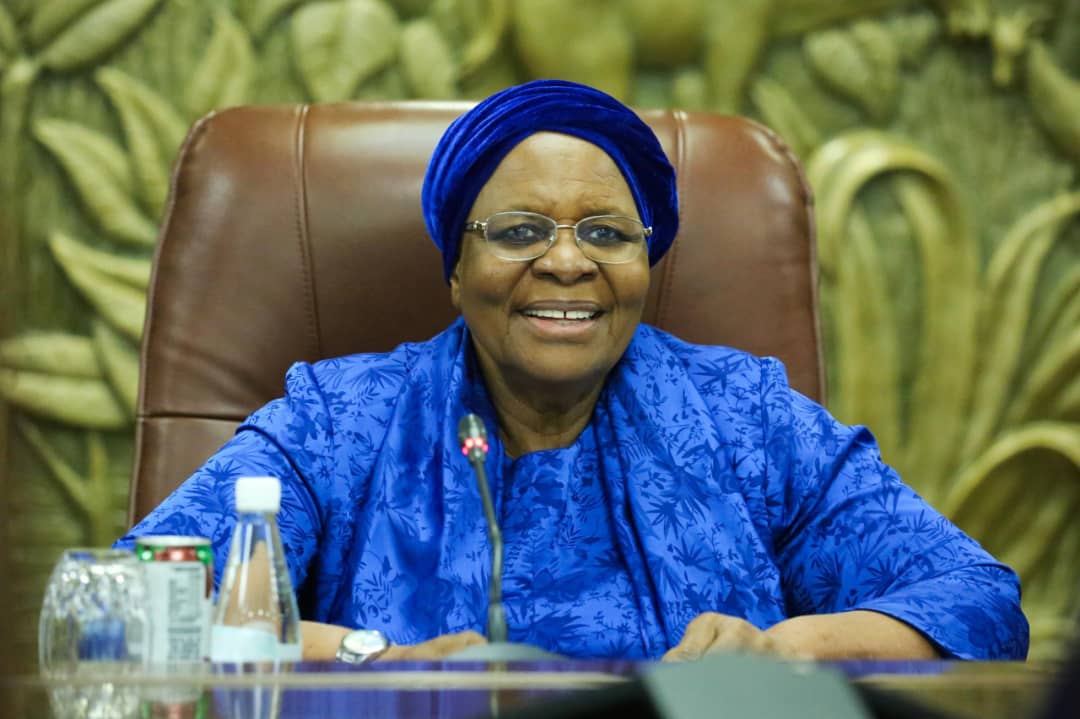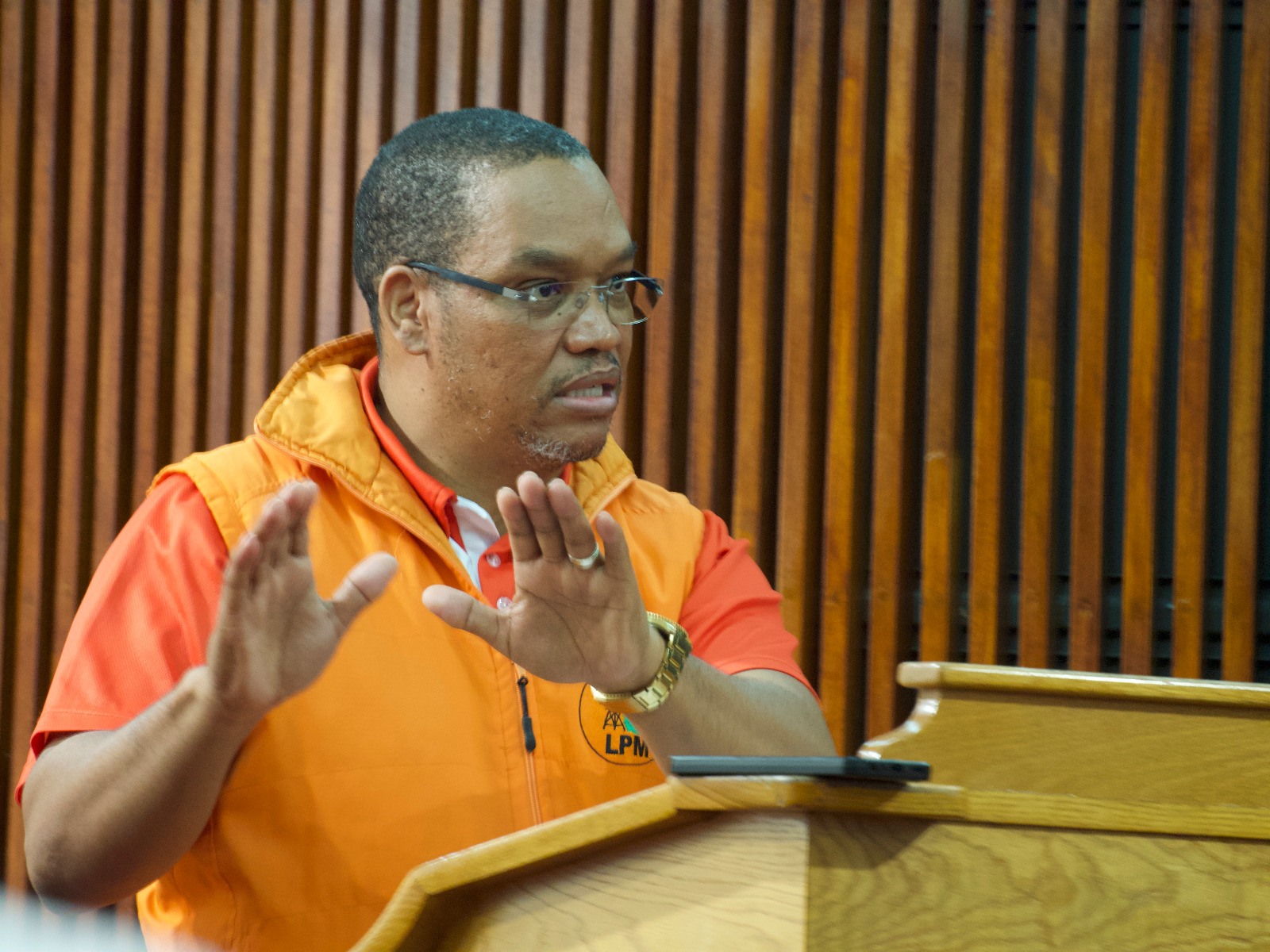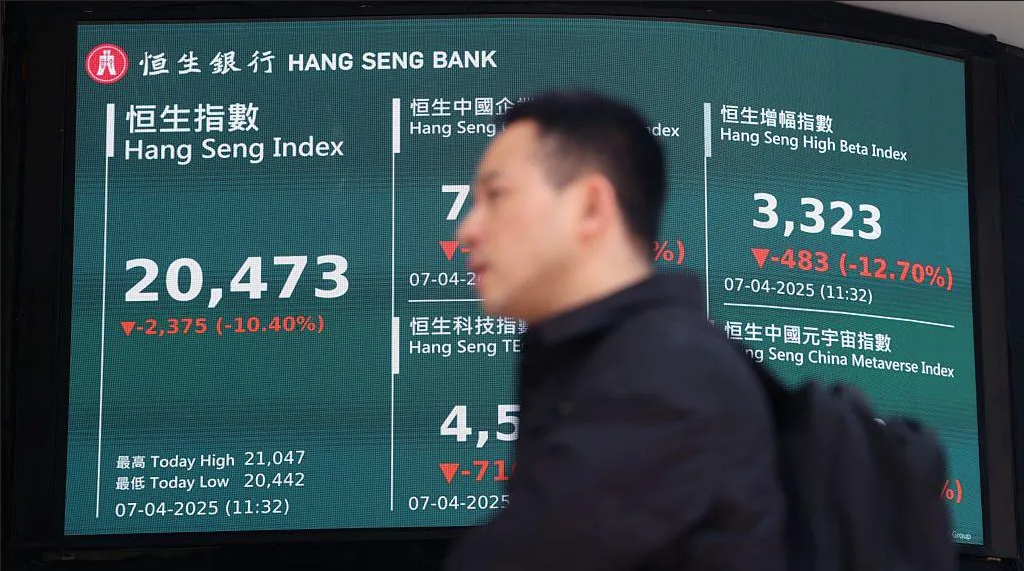BENEDICK LOUW“OMAKE AAFYOONA NYE” (clap hands, you poor people)! This statement is but one of the litany of insults directed at an unsuspecting Namibian populace in recent years by Namibian politicians, but more precisely in November 2014 by then secretary general of Swapo, Nangolo Mbumba when he introduced former Namibian president Hifikepunye Pohamba at a party rally in Katutura.
The mere fact that this happened in Katutura – a historically impoverished township constituted of majority blacks, but which “served as connecting rod between repression and the years of upheaval, and in the end lent itself to serve as cradle for Namibia’s independence” – is a potent dose sufficient to have turned Katutura into a theatre of chaos instantly, and which without any dramatisation could have sparked a bloody stand-off, if say the same posture was exhibited by a politician in Soweto (South Africa), a country where violent confrontation between elected leaders and members of society have become the order of the day. Alas, the serum needed for such inflammatory remarks is still doing push-ups in a Namibian laboratory somewhere.
In an attempt to deconstruct this abusive relationship, and in wanting to appreciate existing tolerance levels of Namibian citizenry in general, it becomes helpful here to juxtapose political tolerance levels of “poor” and “stupid” Namibian citizens with “honourable” Namibian politicians in particular, with the view to make sense also of the sincerity (if any) of a recent “love letter” issued by president Hage Geingob under the hand of his communications conduit, the Ministry of Information and Communication Technology, wherein he decried what they noted as “a deluge of derogatory and insulting messages (audio, video and text) directed at the head of state, Cabinet members and the entire government currently circulating on social media platforms” by the public.
In a nutshell and within the context of an abusive domestic relationship (no pun intended), what this ‘love letter’ seeks to provoke is unconditional respect from, the ‘poor’ ordinary Namibian, despite valid reasons not to honour such a call. As characteristic of domestic abuse set-ups, the perpetrator aims to abdicate mutual respect, a central theme necessary for any healthy and harmonious relationship, but in return demands singular respect from its victim.
What is important here is to remind the oblivious of some of the most vociferous insults slewed at ordinary Namibians by politicians who otherwise occupy positions as ‘representatives of the people’, but whose conduct towards ‘the people’ projects blatant arrogance and disregard for their dignity. For example:
1. “Namibians are stupid” – In April 2013, said by then communications minister Tjekero Tweya upon addressing attendants at the official opening of the Arandis investment conference and mineral, mining and energy expo. “The statement was preceded by an f-word expletive that left blushes on the faces of many attendants”, reported The Namibian the following week.
2. “If you give a farm, a very expensive one, for example to a poor person, how will he run it?” The words uttered by land reform minister Uutoni Nujoma in June 2018.
3. “Fishing rights, people, is not for everybody”, proudly proclaimed one Sacky Shanghala, minister of justice.
In providing an antithesis to such delinquency, Amilcar Cabral reminds us of the duties of an activist in confronting such insincerity when he advises us to “hide nothing from the masses of our people. Tell no lies. Expose lies whenever they are told. Mask no difficulties, mistakes, failures. Claim no easy victories”.
Article 21 (1) (a) of the Constitution, which elucidates fundamental freedoms and which the propaganda ministry rightfully cites as it relates “to freedom of expression and freedom of speech” in tandem with Article 21 (2), which limits the provision of such freedoms where such freedoms impinge on the rights of others – both provisions which have been violated by ‘honourable’ politicians, the said ministry conveniently omits to extrapolate on the violations of other equally important fundamental freedoms committed by politicians, whereas such politicians found themselves to have violated their constitutional parameters as attested by the array of derogatory and insulting remarks unleashed by themselves against their own citizens.
Article 8 (1) (b) makes reference to respect for human dignity in that “no persons shall be subject to torture or to cruel, inhuman or degrading treatments or punishment”. President Hage G Geingob, one of the chief architects of the Namibian Constitution, will agree that any attempt to reduce this fundamental right to corporeal ‘treatment’ only is not only disingenuous but biased, as the propaganda ministry attempted in essence to accomplish. This constitutional phrase embraces the mental and physical well-being of the individual, i.e. it is somatic.
In exposing this flawed narrative held by the government vis-à-vis “insults and derogatory language” hurled at ‘leaders’ without any specific reference – as Cabral advises – it becomes apparent that this latest stint is anything but sincere, and reeks of a political spectacle Namibians have become all too familiar with. It has happened in 2000 with the onslaught against those deemed to be “anti-government”, including the media, as in the case of The Namibian’s advertising ban, which was subsequently lifted in 2011.
The audacity of the ‘love letter’ to insinuate that avenues exist to vent such anger when say scores of houses of the poor are demolished or when poor mothers are terrorised by police whilst selling fat cakes, is thus far-fetched and uncorroborated, but seeks to sedate the emotions of many a dejected Namibian, in particular the youth.
In the final analysis, the sole purpose of the ‘love letter’ aims to induce fear amongst an increasing politically conscientised youth cohort who no longer wander in the corridors of ignorance and silence.
This is what drives Namibian politicians into a constant state of paranoia and the uncontrollable desire to dictate others’ freedoms of expression and freedom of speech embedded in our fundamental freedoms.
This is what irks politicians as they monitor and invigilate social media platforms, cognisant of an electorate who have realised the urgency of the moment; a people who refuse to be beaten into submission with empty threats of “heavy-handedness”; who reject praise-singing, handclapping and ululating where such don’t contribute to economic freedom for all: A generational mission preoccupying the aspirational minds of a new dawn.
Mbumba is today vice president of the Republic of Namibia without having tendered any unconditional apology to the Namibian people, except a feeble expression of “regret” on national TV a few days after such pained remarks were made. Selective morality must fall in 2019!
– Benedick M Louw is a radical economic transformation activist. You can follow him on twitter@benedicklouw
Stay informed with The Namibian – your source for credible journalism. Get in-depth reporting and opinions for
only N$85 a month. Invest in journalism, invest in democracy –
Subscribe Now!




